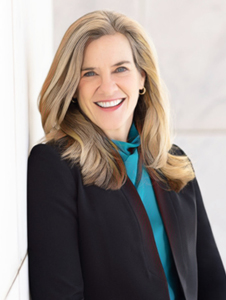Faithful involvement in elections
You cannot divorce religion from politics or separate Christians from the duties of secular citizenship.

“But, can we do that without violating the separation of church and state?”
That’s a question I hear each election year as churches consider their role in their civic community and are asked to engage in political debates. Sometimes it’s hesitation from a pastor who doesn’t want to get involved in an issue. Sometimes it’s an attempt to silence an opposing point of view. Sometimes it’s based on misinformation that the government is going to shut down churches if they espouse a position that disagrees with the White House.
Let’s be clear: churches and other houses of worship have a role in protecting democracy, and the institutional separation of church and state does not require a banishment of religion from public life. You cannot divorce religion from politics or separate Christians from the duties of secular citizenship.
As we say in the Christians Against Christian Nationalism statement: People of all faiths and none have the right and responsibility to engage constructively in the public square. In other words, no matter your religion — or even if you are religious at all — you have the same rights and duties as a citizen in the United States.
Religious people have the same right as anyone to communicate convictions in the marketplace of ideas, working for public policies by preaching, teaching, lobbying, voting and running for office. Living out your faith is not — and need not be — limited to private devotion or activities in a house of worship.
As Baptists, we know this from our own history. Colonial Baptist leaders John Leland and Isaac Backus were both ardent defenders of the institutional separation of religion and the government, and they were involved in public policy debates and attempts to influence legislation in their day.
One thing that often comes up in these conversations are the tax-exempt rules for 501(c)(3) organizations — which churches qualify as. The First Amendment protects the religious expression of churches in many ways, including their right to speak out on important issues. But, if a house of worship wants to receive that 501(c)(3) tax-exempt status, they — like all nonprofits who want that status — have to abide by certain restrictions on lobbying and campaign activity. The so-called “Johnson Amendment” set that rule up in the 1950s, and it continues to protect houses of worship and other nonprofit organizations from political pressure and additional dangers that come with endorsing and opposing candidates.
So, can your house of worship get involved in issues? Yes.
Can it officially endorse a candidate? Not if it wants to be a 501(c)(3) organization.
Can it work to protect our democracy and ensure a free and fair election? Absolutely.
As we approach various voting deadlines for the 2024 election, there’s a new resource available for houses of worship looking to do just that. The “Faith in Elections” playbook is a nonpartisan resource from Interfaith America and Protect Democracy. On a recent episode of our Respecting Religion podcast, I spoke with Chris Crawford from Protect Democracy, and he mentioned that 20 percent of polling locations are houses of worship, most of them churches, and it’s more than 50 percent in some states.
The statistic might surprise most people, but we know houses of worship can provide services to the general public, similar to what a community center can do. It’s a way of loving our neighbors. In many communities where there is a shortage of adequate places to serve as polling places, churches can fill a real need. Of course, loving our neighbors well also means making sure those activities are open to all people — we don’t want people to think there is any religious test for being able to vote. And, as Crawford told me on the show, “As a Catholic, I don’t want a polling booth right in front of where the Eucharist is or right at the foot of a crucifix. I see that as protecting my religious faith in addition to protecting the state.”
Protecting democracy is related to religious freedom. Free and fair elections are foundational elements to having a country that protects other rights. When we vote, we recognize citizens draw upon their diverse religious perspectives. “Our rights don’t exist in a vacuum,” Crawford told me. “We need a system of government that allows us to debate our disagreements, to have different, competing visions for what’s best for a society — including visions that are informed by faith,” he said.
As you and your house of worship approach this upcoming election year, I want to encourage you to take bold stances on issues that impact you and your neighbors, and consider ways you can help protect our free and fair elections. In our spring 2024 edition of Report from the Capital, a timeline shows the history of voting rights in the U.S. and is a reminder that not everyone has truly had access to the right to vote.
Even if we disagree about religion or disagree about where our particular faith takes us on an issue, we should be dedicated to sharing reliable information with others. Let’s speak out, be involved, and love our neighbors well during this election year.
This article first appeared in the spring 2024 edition of Report from the Capital. You can download it as a PDF or read a digital flip-through edition.




